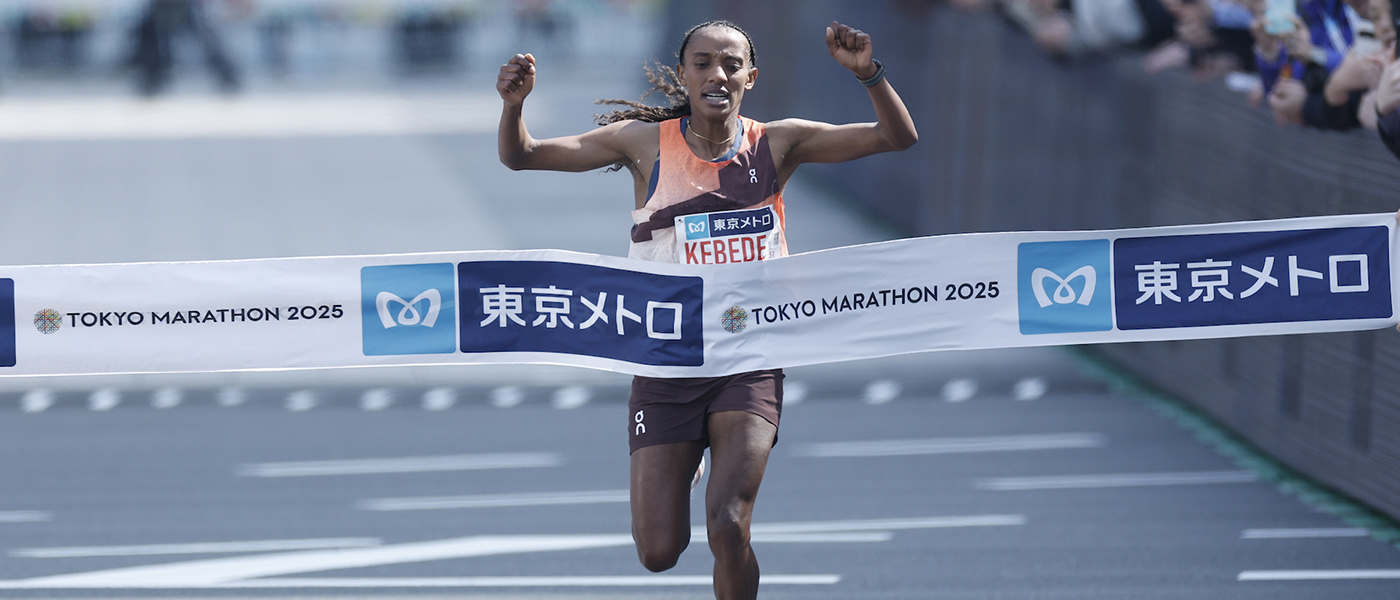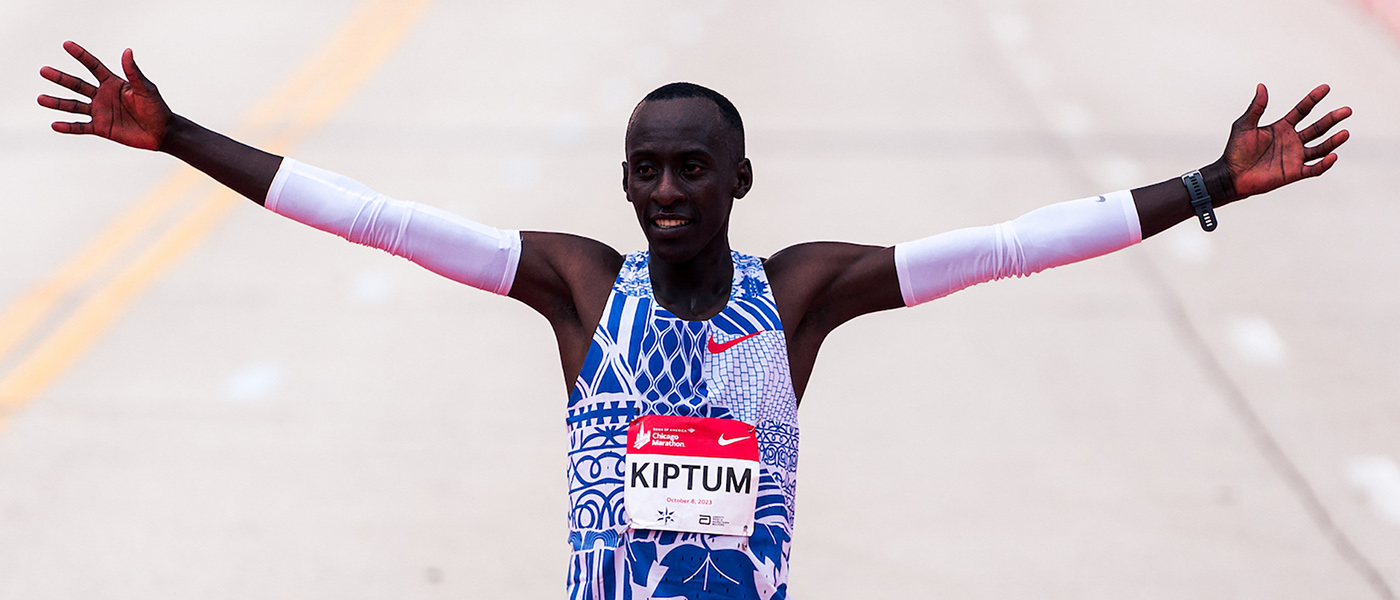
Andrew Kastor will be here each month to answer your questions on all things training. Whether it's breaking the magic four-hour barrier or finding the key to better endrance in those late miles, Andew is here to help. Submit your question here.
Here is the pick of this month's advice.
Question: "I'm 55 and seven marathons in—just Tokyo and London shy of my Six Star medal. My PR is 3:26 (Chicago 2018). I use an 18-week training programme, with four phases. I run an average of 50 to 68 miles each week, completing six runs of mixed speeds and paces in five days, plus two recovery days. I also do additional strength training, swimming and stretching. I sleep eighthours a night and eat well. I've switched to carbon fiber plated shoes this year, too. Is there anything else I can be doing to improve my supercompensation-led training while getting ready to run Tokyo 2021?" — Stephen Atkins
Answer: First of all Stephen, it sounds like you already have a very good training regimen and are taking great care of your body—well done! Part of my job as a coach is to help elite athletes leave no stone unturned in their quest for supreme fitness. We analyze heart rates (both at rest and at work), blood profiles, diet, stride mechanics, muscular strength and more in an effort to fine tune our training. And in many ways, training hard is the easy part. It's often the other 20 hours of the day that separates the contenders from the pretenders, so here's what I would recommend:
- Catch more Z's -Yes, more. When my wife was training for the Olympic Marathon, she would routinely sleep 12 hours a day (10 hours at night and two in the afternoon). Squeezing those extra hours in gives you a natural boost in human growth hormone to aid in tissue regeneration and repair, thus speeding up recovery.
- Get a massage -Regularly. Many elite marathoners enjoy two to four massages a week in an effort to speed up recovery and push out the metabolic waste produced by training. I realize this is not possible for most runners, but do what you can—and be sure to elevate your legs above your heart several times a week to help increase circulation to your biggest running muscles.
- Consider two-a-days -A great way to bolster your aerobic fitness is to run twice a day. That's right. The more volume (miles or kilometers) you can run in a week, the better your marathon training will be. The one caveat? You don't want to get injured, so it all has to be relative to your own personal base. Elite marathoners will log 120-140 miles (200-235km) per week, but it's taken them years—sometime decades—to reach a place where they can safely handle that kind of volume. To start, try gradually adding a 20- to 30-minute easy run (staying in the aerobic zone) into your routine one to three afternoons (or evenings) per week.
- Look inside -This might be a good time to check your blood profile. Many top marathoners get their blood profiles checked every three to four months, just to make sure their iron, ferritin and Vitamin D levels (along with other vitals) are up to par. If anything comes back on the low side, it could be an indicator that you're deficient, and you can then work with your physician to devise a plan to bring that value back up into the normal range for performance optimization.
- Train high -There's a reason most of all Olympic medals earned in middle to long distance races since the 1990's have been achieved by those living or training at altitude (7000'/2100m and higher). It has been shown to boost your red blood cell mass, which helps deliver more oxygen to your working muscles. If you don't already live at altitude, try an altitude training stint for a minimum of threeweeks, roughly sixweeks out from your next marathon race, if at all possible.
- Train with a group -Unlike when you're logging miles solo, training with a group means there is always someone there to push the pace. If you can, recruit someone (or a few runners) to help challenge you during your workouts. Having training partners is a great way to keep you motivated week in and week out. Misery loves company, after all.
Q: "I've done three marathons, including Chicago 2018 (4:04) and Berlin 2019 (4:14), and I'm really working toward a sub-four.What would you recommend my weekly mileage be? Any other key areas you think I should focus on?" — Rachel Gitonga
A: Congrats on completing three AbbottWMM races so far Rachel —that's awesome! And it looks like you are so very close to reaching your sub-fourgoal, too. I know from personal experience how exciting, yet challenging, striving for a personal best can be.
- For the marathoners I coach remotely who are aiming to break fourhours on a fast course, like Chicago, London or Tokyo, I typically have them running 45 to 55 miles (75-90km) a week during their peak training weeks.
- In addition to building up your mileage base, these weeks strategically include one speed session of long (like one-mile) repeats, at their current anaerobic threshold pace (50 to 70 seconds faster per mile than your goal marathon race pace), one long tempo run at goal marathon pace, and one long run with a negative split, during which you start slow, then run the second half at goal marathon pace (i.e. running 10 miles at 10:00 pace, then increasing your speed the last 10 miles to 9:00-9:10 pace)—this will help your body get used to running at goal pace while fatigued, like you would in a race.
Q: "I normally take the water and gels provided at the aid stations on race day, but without these stations during my virtual marathon, how do you suggest I manage my hydration and nutrition?" — Anonymous
A: Consider this your opportunity to race like an elite athlete! They provide their own hydration and fuel during all AbbottWMM Major races, and pick them up every 5km. This year's elite Virgin Money London Marathon race (elite-only) will be staged on a 1.3-mile (2.1K) looped course.
- For your own virtual marathon, I would recommend mapping out a similar, slightly longer (2-4 miles, or 3-6K) loop near your home or a nearby park, where you can place your own aid station, stocked with everything you need to complete the distance. And if you live somewhere where this strategy is not possible.
- I suggest recruiting a friend on a bike to help you with your journey through the city. They can be your own personal mobile aid station.
- If that's not possible, then you'll simply need to carry a lightweight hydration pack with enough fluids and nutrition to keep you well hydrated and fueled for your entire marathon distance.
Q: "I've increased my mileage during lockdown, as a way to get outdoors every day, but my feet are starting to feel tight and sore. Any tips to help them recover a little quicker?" — Anonymous
A: Glad to hear you're getting out each day for a run—it's so good for us mentally and physically right now. Plus, you'll see the payoff this fall during your virtual marathon. Sorry to hear about your feet though. Here are a few things that could help make it easier on them as you increase your training volume:
- Replace your shoes every 250-300 miles.
- Insert an after-market polyurethane insole into your shoes (remove original insole first!). I've been using Spenco brand "runner/walker" insole for 25 years. These will help reduce impact forces while running.
- Give yourself (or recruit a friend) regular foot massages.
- Elevate your feet periodically throughout the day.
- Roll your sore arches on top of a tennis (or lacrosse) ball for a few minutes each day to help alleviate tension and promote blood flow to speed up recovery.
- Listen to your body. If the pain is sharp, you should take a break and consult your doctor to make sure it's nothing serious. You need happy feet for happy training. Good luck! 


Submit your question for Coach Kastor HERE!
Other news

Kebede eyes history in Tokyo

Episode 84: Hall In For Tokyo! - Marathon Talk meets Sara Hall as we preview the Tokyo Marathon



